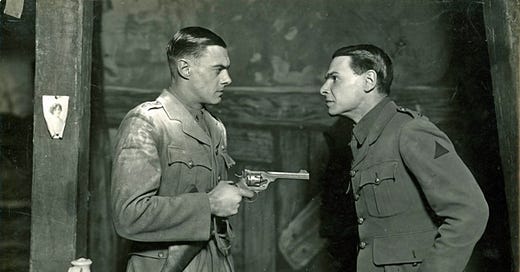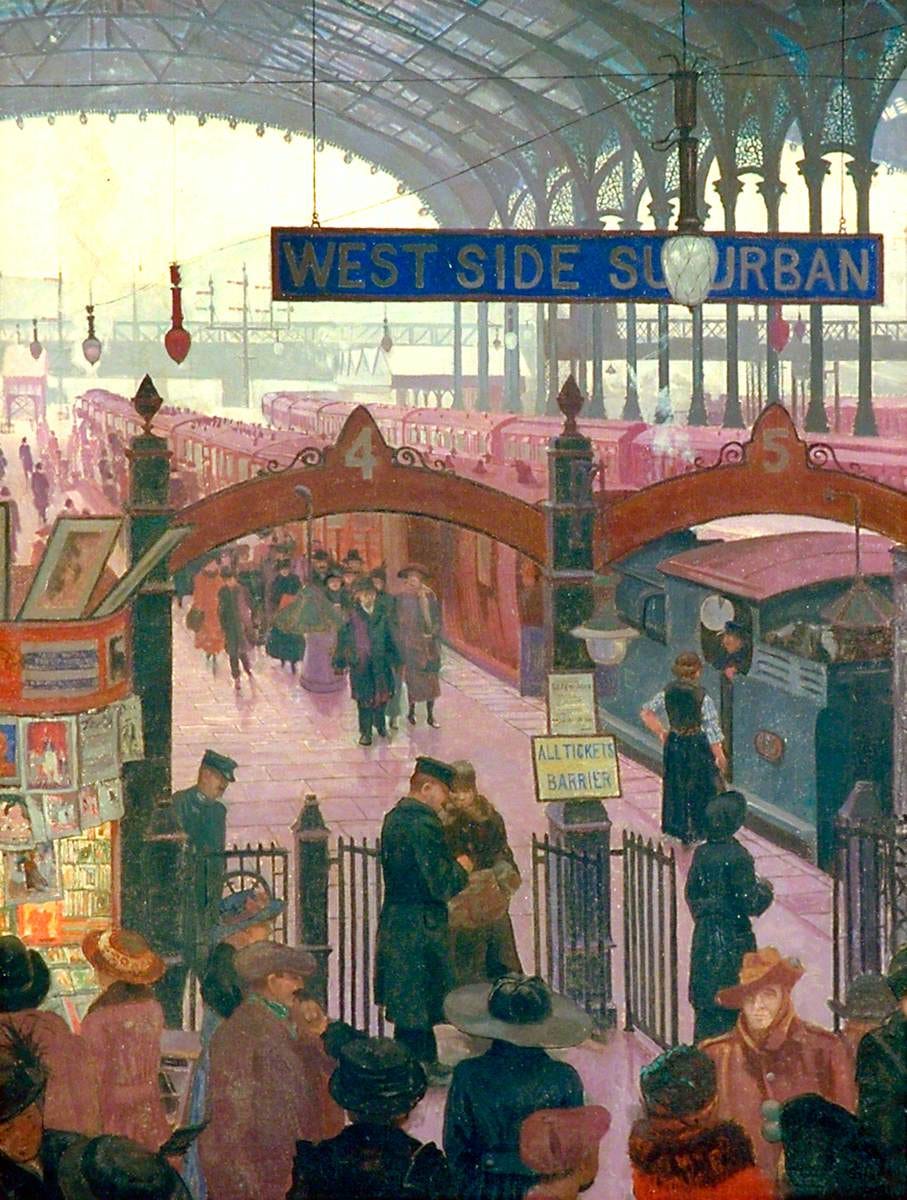'Nothing to fear': The Fortnight in September part 1
The formative wartime experiences of R.C. Sherriff (1896-1975) (1 of 3)
On the enigmatic author, playwright and Hollywood screenwriter R.C. Sherriff, and why his fiction provided a way of rewriting his past. We’re reading his novel The Fortnight in September (1931) in this month’s 20th-century book club.
Hello, and welcome! This week’s post is about the First World War experiences that inspired R.C. Sherriff’s play, Journey’s End (1929). Two years after its debut in London’s West End, he was convinced that his theatrical star had faded and published his first novel, The Fortnight in September, which became another unexpected best-seller. ‘When this was published in 1931 its author was described as a worthy successor to Charles Dickens,’ the social historian Juliet Gardiner writes, ‘and it established his reputation as a sharp and perceptive chronicler of lives that, despite their undramatic domestic banalities, often reveal greater truths than might initially appear.’ It’s also been described as one of the great ‘middlebrow’ novels of this British interwar era (I wrote about this phenomenon, usually applied to popular novels by women writers, here) so I’m curious to find out your impressions of it. Here’s my introduction to the wartime experiences that shaped Sherriff as a writer.
Keep reading with a 7-day free trial
Subscribe to Cambridge Ladies' Dining Society to keep reading this post and get 7 days of free access to the full post archives.




